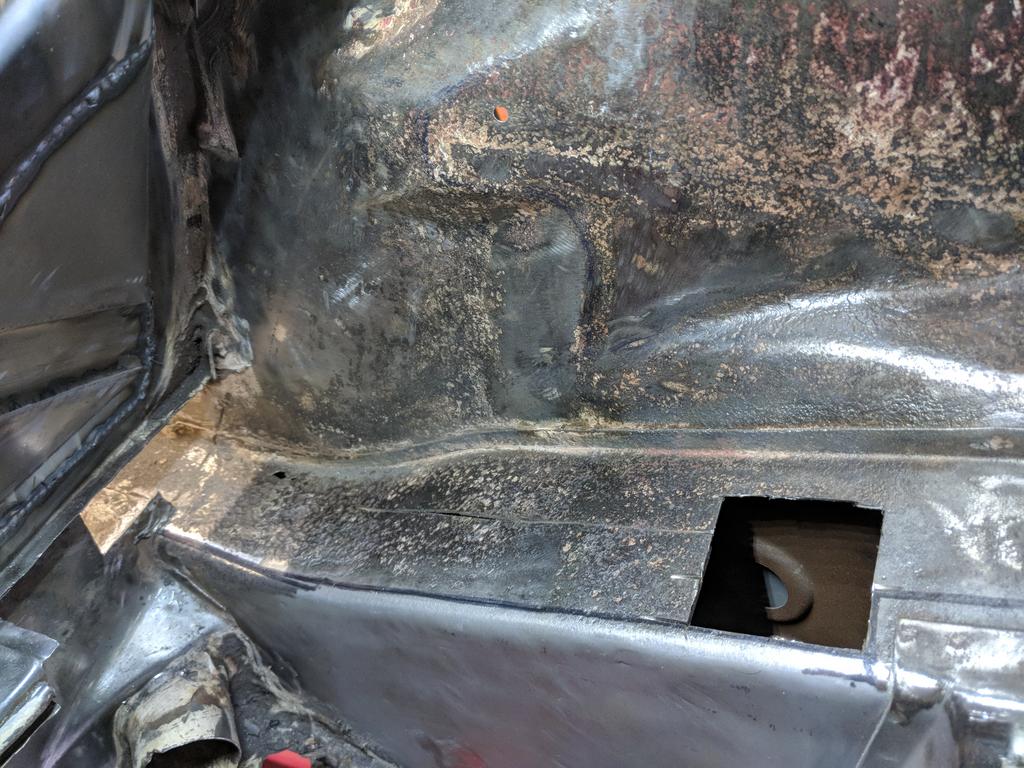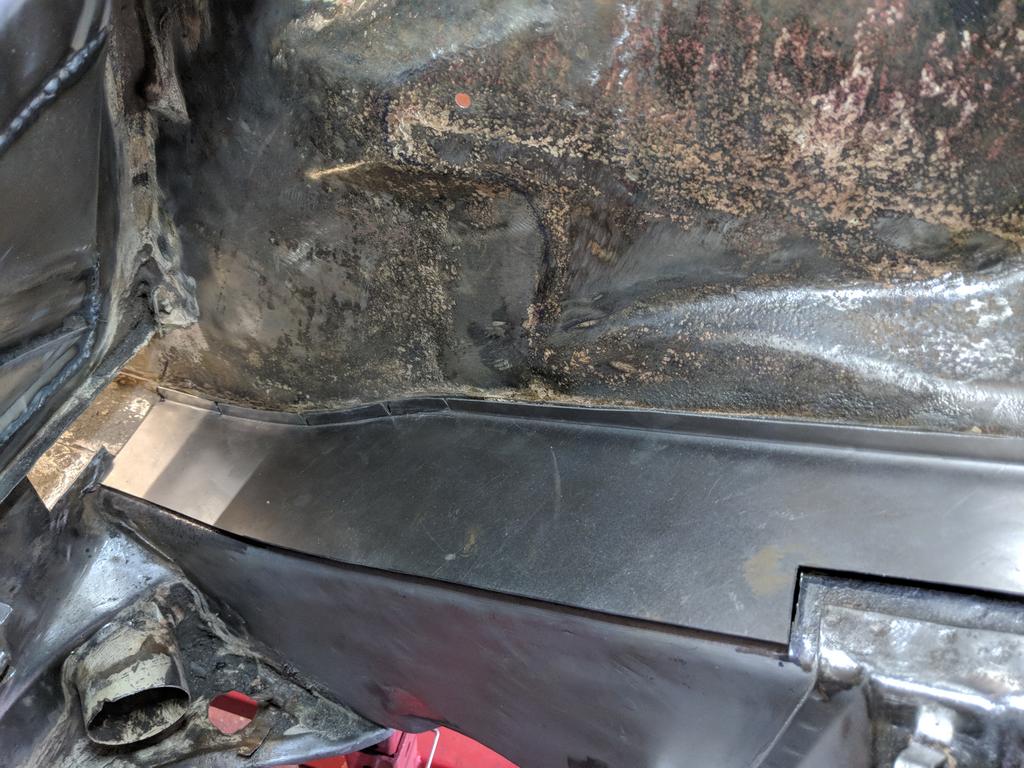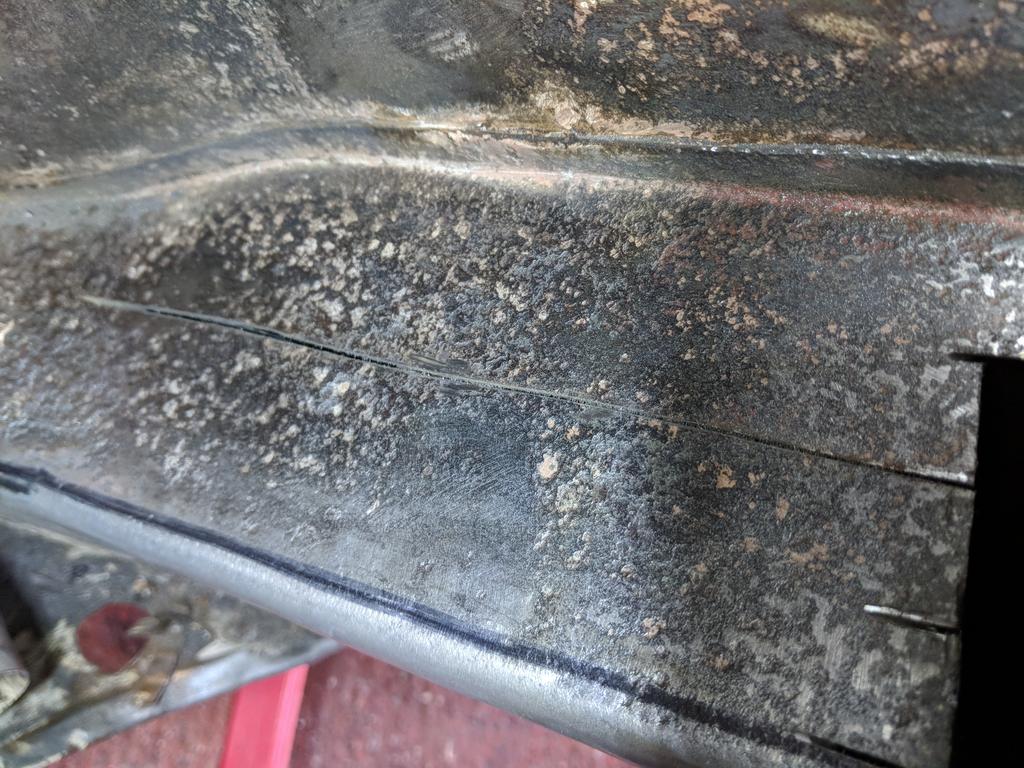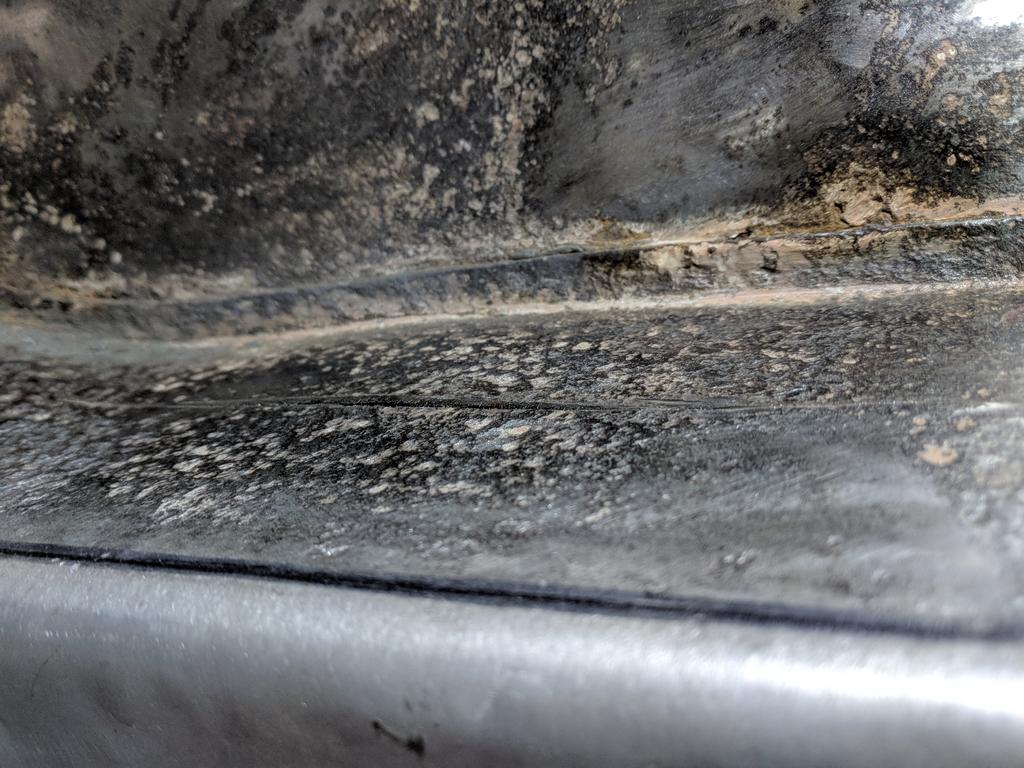Here's where I am at the moment, just starting to cut out the rot and replace with the repair panel I've fabricated.


After cutting into the panel with a 1mm cut off disc it was clear the some forces were pushing to close the gap slightly after I'd finished. You can also can also see that pressure has been released and the metal has warped slightly.


This is where I am now and I thought I'd stop and get some advice. The car is on jackstands located on the four jacking donuts I also have the doors gaps well braced.
I am missing something? Safe to proceed? Your thoughts please.
Thanks.
